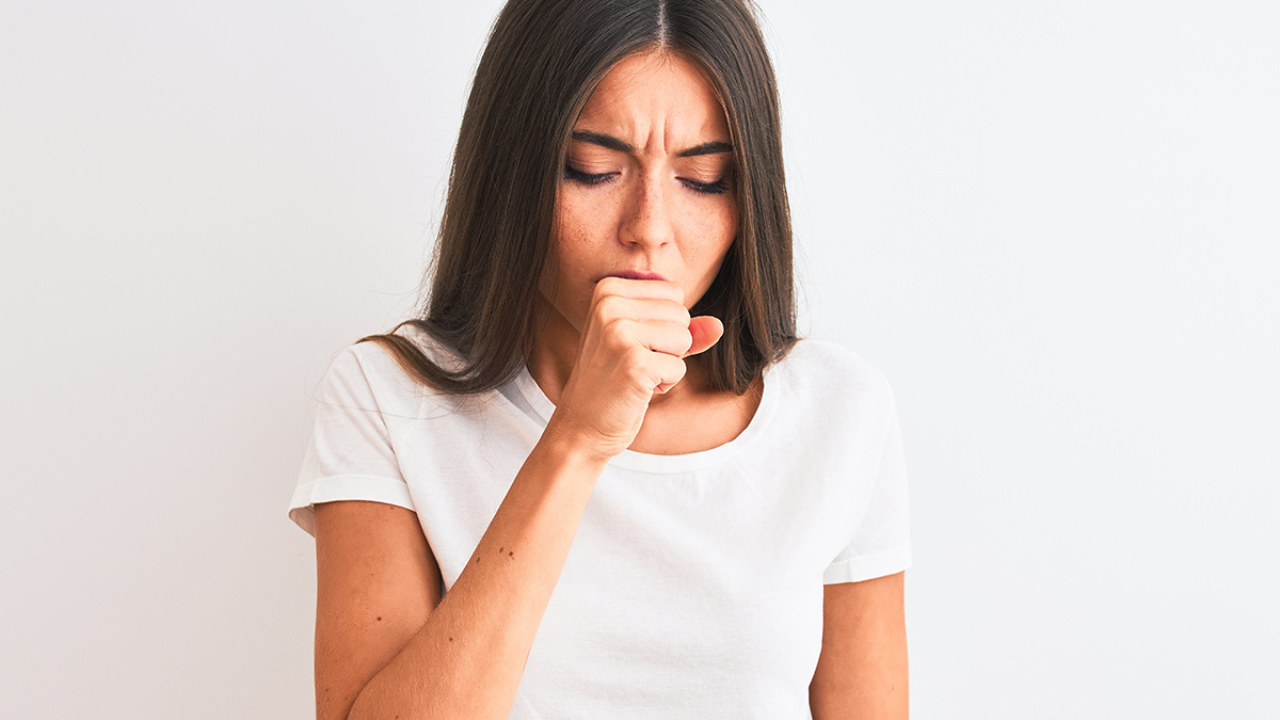Have you ever taken a sip of a cold drink and felt an unexpected cough come on? You're not alone! This is a very common experience, but it can also be concerning.
In this blog post, we will explore why cold drinks might make us cough, the possible underlying causes behind this phenomenon, and how to prevent or reduce coughing when drinking various cold foods and beverages.
Read on to learn more about why cold drinks make us cough and what tips you can use to manage it.
Identifying the Causes of Coughing After Drinking Cold Drinks
There are several possible causes of coughing after eating ice cream or drinking cold drinks, such as airway inflammation, airway irritation, and even an underlying medical condition.
Airway inflammation can occur when the temperature of the drink is too low or if you're drinking something with a strong flavor (like carbonation). This irritation to your nose and throat may cause you to cough in order to clear it.
Airway irritation can also occur from acid reflux or post-nasal drip. Acid reflux happens when the contents of your stomach flow backward up into your throat, and post-nasal drip is when mucus builds up in the back of your throat after a cold or allergies. Both of these conditions can cause coughing after drinking cold drinks.
Finally, there may be an underlying medical condition that can cause coughing after drinking cold drinks. Asthma and other respiratory conditions can make you more sensitive to temperature changes or certain flavors in cold liquids, which could lead to coughing. Additionally, diseases like cystic fibrosis and pulmonary hypertension can also cause this reaction.
Understanding the Science Behind Coughing and Cold Drinks
The Science behind why cold drinks cause coughing is actually quite simple. When we take a sip of a cold drink, it triggers a reflex in the throat which causes us to cough. This reflex is an automatic response from our body designed to protect our airways and lungs from inhaling anything in cold air that isn't supposed to be there.
The throat's natural reaction to the temperature change of cold food and drinks is to constrict and force out any particles that may be present. Unfortunately, this can lead to coughing if there's nothing actually in the drink.
It's also important to note that some people may be more sensitive to this reflex than others and therefore cough more frequently when drinking cold beverages.
Why Do Cold Drinks Make Me Cough
The answer to why cold drinks make us cough is complex and varies from person to person. It can be caused by airway inflammation, acid reflux, post-nasal drip, or an underlying medical condition. Additionally, some people may simply be more sensitive to the temperature change of cold and hot drinks, than others.
Although coughing after drinking cold beverages warm water can be concerning, it is generally not a cause for alarm.
However, if the coughing persists or is accompanied by other symptoms such as difficulty breathing or chest tightness, then you should seek medical attention immediately.
Exploring Possible Solutions to Stop Coughing After Drinking Cold Drinks
If you experience coughing after drinking the cold water or drinks, there are several possible solutions that may help reduce or prevent it.
First, try drinking the beverage at room temperature instead of cold. This will take away the sudden change in temperature and should eliminate any coughing.
You can also try adding a teaspoon of honey to your drink, as this can act as a natural throat soother. Additionally, avoiding drinks that are highly- carbonated drinks or contain strong flavors may help reduce coughing.
Finally, if you have an underlying medical condition such as asthma, speak with your doctor to determine the best course of action for managing your symptoms.
Identifying Dietary Triggers for Coughing After Drinking Cold Drinks
It's possible that certain foods or drinks may trigger coughing when consumed with cold beverages. Common dietary triggers include dairy products, citrus fruits, mints, and other acidic foods.
Also, be aware of any additional ingredients that may be in your drink. For example, many sports drinks contain high levels of sodium which can lead to coughing after drinking them cold.
If you think a certain food or drink is causing your coughing reaction, try avoiding it and see if that helps reduce the cough.
Looking Into Common Home Remedies That Help Reduce Coughing After Drinking Cold Drinks
If you’re looking for some home remedies to reduce coughing after drinking cold drinks, here are a few options to consider.
Gargling with warm salt water is a great way to soothe an irritated throat and can help prevent coughing. You can also try drinking herbal teas such as chamomile or slippery elm, as they are known to be effective in reducing throat irritation.
Additionally, consuming ginger can also help reduce coughing. Try adding a few slices of fresh or powdered ginger to ice cream in your drink or simply chew on some raw ginger before you have a cold beverage.
Finally, drinking plenty of fluids throughout the day can help keep your throat lubricated and prevent coughing.
Investigating Medical Interventions that May Help With Coughing After Drinking Cold Drinks
If you find that your coughing is persistent and disruptive to your daily life, it may be time to seek medical help. Your doctor will be able to evaluate your symptoms and determine if any underlying conditions may be causing the coughing.
They may also prescribe medications or suggest lifestyle changes that can help reduce the frequency of coughing after drinking cold drinks. Additionally, they may refer you to a specialist if necessary.
Also, if you suffer from asthma symptoms or another respiratory condition, it's important to speak with your doctor about the best strategies for managing your condition during cold weather.
FAQs
Can drinking cold drinks make me sick?
Drinking cold beverages alone is not likely to make you sick, however it a cold brew can cause coughing due to the sudden temperature change. Additionally, some people may be more sensitive to this reflex than others and therefore cough more frequently when drinking cold beverages.
What should I do if I experience coughing after drinking cold beverages?
If you experience coughing after drinking cold beverages, try drinking at room temperature instead of cold liquid and adding a teaspoon of honey to your drink. Additionally, avoiding drinks and avoid ice cream that are highly carbonated or that drink alcohol contain strong flavors may help reduce coughing. If the coughing persists or is accompanied by other symptoms such as difficulty breathing or chest tightness, then you should seek medical attention immediately.
Are there any home remedies I can try to stop coughing after drinking cold drinks?
Yes! Gargling with warm drinks and salt water is a great way to soothe an irritated throat and can help prevent coughing. You can also try drinking herbal teas such as chamomile or slippery elm, as they are known to be effective in reducing throat irritation. Additionally, consuming ginger can also help reduce coughing. Finally, drinking plenty of fluids throughout the day can help keep your sore throat lubricated and prevent coughing.
Conclusion
All in all, while drinking cold drinks may cause a person to cough unexpectedly, the exact mechanisms of why this happens are still being investigated.
Despite no definitive conclusions yet, it is still important for people who experience coughing after drinking cold drinks to look out for any other accompanying symptoms that could point toward an underlying condition.
Therefore if a person experiences persistent coughing or other unexplained symptoms after consuming cold drinks it is advised that they should speak with their doctor to receive proper diagnosis and treatment.
Cold drinks have been around and enjoyed for a long time but they can have unexpected consequences that can be related to some underlying medical conditions therefore it is important for people to be aware of Why Do Cold Drinks Make Me Cough and the potential side effects they can have on our bodies.


